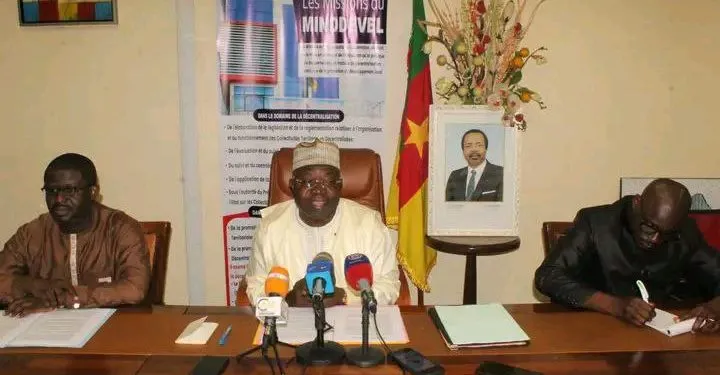A total of 187 councils across Cameroon’s Far North, North, Adamaoua, East, NorthWest, and SouthWest regions have received 189 billion FCFA in funding to combat natural disasters. This grant, provided by the World Bank, was announced by the Minister of Decentralisation and Local Development, Georges Elanga Obam, during a press conference in Yaoundé on Wednesday, October 9.
The grant is part of the Local Governance and Resilient Communities Project (PROLOG), which aims to strengthen local governance and enhance communities’ ability to cope with crises such as climate change, natural disasters, and the influx of refugees. Minister Elanga Obam emphasised that the funding would help communities address these challenges more effectively, while also reaffirming the government’s commitment to providing tangible solutions through decentralisation.
“We want to ensure that our communities are equipped to deal with the realities of climate change and other crises. Decentralisation is key to providing those solutions,” said Minister Elanga Obam.
Unequal Distribution of Funds
The minister further explained that the funds would be distributed according to the status of each council.
“Each of the 360 municipalities receives 100 million FCFA annually. Each city council is allocated 280 million FCFA per year, while the regional councils will receive one billion FCFA each,” Minister Elanga Obam explained.
In addition to the World Bank grant, the Cameroonian government will contribute an extra 28.3 billion FCFA over three years. These funds will be awarded to regional and local authorities based on their performance in governance and service delivery.
Challenges in Tackling Natural Disasters in Cameroon
Historically, the Ministry of Territorial Administration has spearheaded the government’s efforts to respond to natural disasters, predominantly focussing on floods and landslides. Assistance has typically been limited to providing basic necessities like mattresses, buckets, and food supplies to affected populations. However, little has been done to rebuild personal property destroyed by these disasters.
Will mayors be able to implement more practical and long-lasting solutions than those that the Ministry of Territorial Administration previously proposed now that they are in charge of significant new funds?



